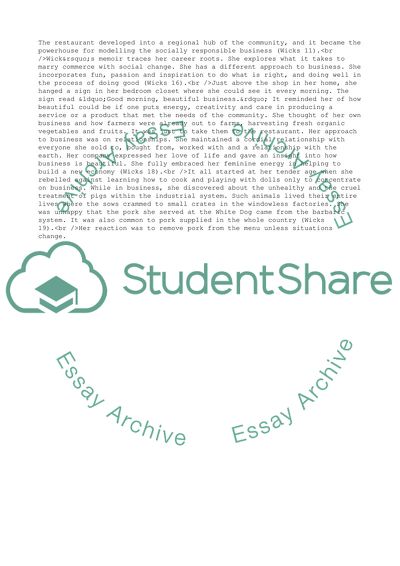Cite this document
(Good Morning Beautiful Business by Judy Wicks Literature review Example | Topics and Well Written Essays - 1500 words, n.d.)
Good Morning Beautiful Business by Judy Wicks Literature review Example | Topics and Well Written Essays - 1500 words. https://studentshare.org/business/1871891-judy-wicks-memoir
Good Morning Beautiful Business by Judy Wicks Literature review Example | Topics and Well Written Essays - 1500 words. https://studentshare.org/business/1871891-judy-wicks-memoir
(Good Morning Beautiful Business by Judy Wicks Literature Review Example | Topics and Well Written Essays - 1500 Words)
Good Morning Beautiful Business by Judy Wicks Literature Review Example | Topics and Well Written Essays - 1500 Words. https://studentshare.org/business/1871891-judy-wicks-memoir.
Good Morning Beautiful Business by Judy Wicks Literature Review Example | Topics and Well Written Essays - 1500 Words. https://studentshare.org/business/1871891-judy-wicks-memoir.
“Good Morning Beautiful Business by Judy Wicks Literature Review Example | Topics and Well Written Essays - 1500 Words”. https://studentshare.org/business/1871891-judy-wicks-memoir.


